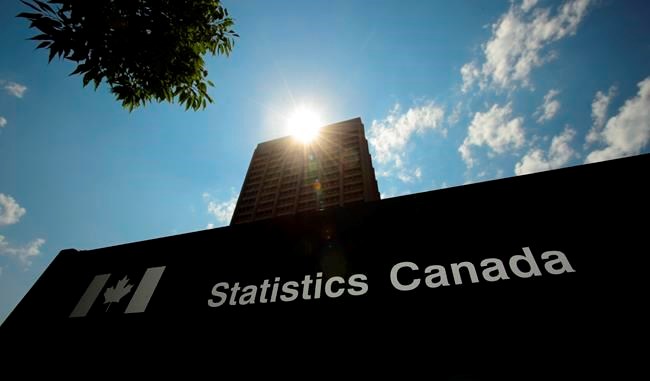OTTAWA — Canada's inflation rate likely took another dip last month, but with many Canadians still struggling with the cost of living, the federal government is facing pressure to deliver more help in the upcoming budget.
Statistics Canada is set to release its February consumer price index report on Tuesday, giving its most up-to-date reading on inflation ahead of the federal government's budget on March 28.Â
Desjardins and RBC are both forecasting the inflation rate fell to 5.4 per cent last month, down from 5.9 per cent in January.
But even as inflation eases, the federal government has signalled the budget will include affordability measures to help Canadians still challenged by the cost of living.
Desjardins' chief economist Jimmy Jean said all eyes are on Ottawa to balance affordability priorities with fiscal restraint.
"One of the things we obviously are going to watch is what governments put forward to help with cost of living, all with the constraint that it must not add fuel to the fire (of inflation)," Jean said.Â
The Bank of Canada has been laser-focused on bringing inflation back down to its two per cent target. Its aggressive rate hike cycle over the last year is starting to slow the economy by forcing people and businesses to pull back on spending.Â
As the economy slows, economists worry excessive or untargeted measures by the federal government could work against the central bank's efforts and force it to raise interest rates even higher.Â
Finance Minister Chrystia Freeland has said repeatedly that she's committed to fiscal restraint and ensuring the federal government doesn't make the Bank of Canada's job harder.Â
But the Liberals are also facing pressure from New Democrats to continue providing support for low-income Canadians who are hardest hit by inflation.Â
NDP Leader Jagmeet Singh said he wants to see the government extend the six-month boost to the GST rebate, introduced last fall, which temporarily doubled the amount people received.
At a news conference Wednesday, Prime Minister Justin Trudeau didn't weigh in on whether his government would extend the rebate, but said the budget will include affordability measures.Â
"In our budget, we are going to be putting forward measures that will directly help Canadians," Trudeau said.Â
Inflation has become a top political and economic concern in the country after a significant runup in prices last year, driven in part by the Russian invasion of Ukraine and mangled supply chains.
But since peaking at 8.1 per cent last summer, Canada's inflation rate has been steadily declining as global pressures on inflation ease and high interest rates weigh on the economy.Â
Jean said lower gas prices last month likely drove the headline inflation rate down further. Other components of the CPI, like food prices, probably didn't ease by much.
Grocery prices in January were a staggering 11.4 per cent higher than they were a year ago.Â
RBC economist Carrie Freestone said businesses, including grocers, have been able to pass on the extra costs they're facing from suppliers to consumers. But grocery prices are still expected to ease as lower agricultural commodity prices feed through the supply chain.
"It's just seems to be taking a bit of time," she said.Â
The Bank of Canada is currently holding its key interest rate steady at 4.5 per cent, hoping inflation will ease without the need for more rate hikes. It's forecasting inflation will fall to about three per cent by mid-year.Â
"As long as inflation continues to trend lower as we expect ... (the Bank of Canada) will probably stay on the sidelines," Freestone said.
For workers who haven't seen their wages keep up with inflation, the rapid rise has been especially punishing. But as inflation slows, the gap between the two is narrowing.Â
In February, average hourly wages were up 5.4 per cent, matching forecasts for inflation.
The Bank of Canada has said persistently strong wage growth will make getting back to the two per cent inflation target difficult.Â
For workers, Jean said the narrowing gap between inflation and wage growth is good news, but doesn't make up for what they've lost.Â
"We're not talking about making up for the last two years of wage growth not keeping up with inflation," Jean said. "We're just stopping the hemorrhage here."Â
This report by The Canadian Press was first published March 17, 2023.
Nojoud Al Mallees, The Canadian Press




